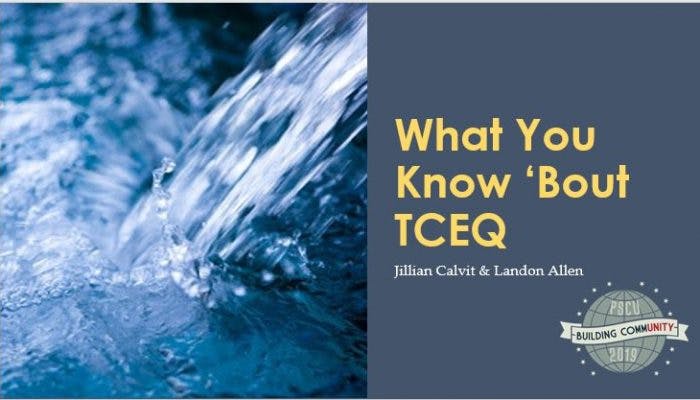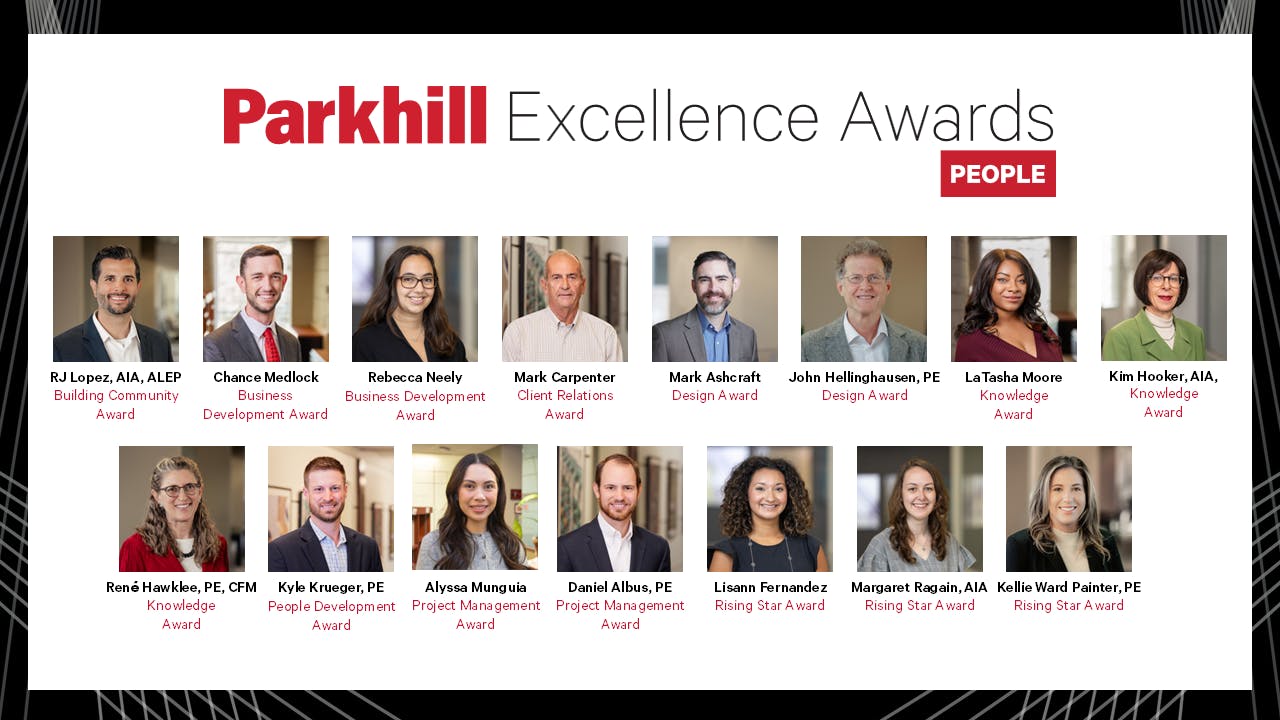University of Parkhill 2019-What You Know About TCEQ
Category: Engineering
Written By: Nicole McBride
Date: June 19, 2019

 The Texas Commission on Environmental Quality (TCEQ) is based in Austin, Texas. TCEQ determines and enforces regulations for water, wastewater, air and land development projects. Jillian Nava, civil EIT, and Landon Allen, PE, in the water resources sector, reviewed what this organization does specifically relating to water and wastewater in their University of Parkhill 2019 presentation “What You Know About TCEQ.”
The Texas Commission on Environmental Quality (TCEQ) is based in Austin, Texas. TCEQ determines and enforces regulations for water, wastewater, air and land development projects. Jillian Nava, civil EIT, and Landon Allen, PE, in the water resources sector, reviewed what this organization does specifically relating to water and wastewater in their University of Parkhill 2019 presentation “What You Know About TCEQ.”
TCEQ Chapters 290 and 217 are the standards for public water systems and wastewater design respectively. Each project begins by looking at these regulations and requirements, which are easily accessible online. Systems that were discussed and regulated by TCEQ are municipal groundwater sources/wells, potable water, elevated and groundwater storage tanks, and sanitary sewer lift station design.
 Prior to the construction of a municipal water/sewer project, TCEQ has specific checklists and forms that must be completed and included with the plans and specifications submitted for their review. Once the review is completed and the project is in compliance with correct regulations, TCEQ will issue an “approved for construction” letter. After a project’s submission, the approval letter from TCEQ typically takes 60 days to receive, Nava and Allen said. This factor is important to be taken into consideration during planning for the timeline of a project.
Prior to the construction of a municipal water/sewer project, TCEQ has specific checklists and forms that must be completed and included with the plans and specifications submitted for their review. Once the review is completed and the project is in compliance with correct regulations, TCEQ will issue an “approved for construction” letter. After a project’s submission, the approval letter from TCEQ typically takes 60 days to receive, Nava and Allen said. This factor is important to be taken into consideration during planning for the timeline of a project.
Having TCEQ’s construction approval prior to bidding the project aids in the planning and phasing of the project and helps prevent unnecessary delays and expenses to the clients. The completed project may require additional information submission to TCEQ to ensure the health, safety, and public’s protection are met. In particular, if the project is a well, an “interim approval for use” will need to be obtained prior to entering the new well into the municipal system.
TCEQ is closely tied with other organizations that govern standards for water and wastewater systems – the American Water Works Association (AWWA), American National Standards Institute (ANSI), National Science Foundation (NSF) and Occupational Safety and Health Administration (OSHA). Water quality, ladder width for an elevated storage tank, and material standards are a few examples listed in these requirements.
 Parkhill has its own set of guidelines that reinforce meeting the requirements of TCEQ. Each project starts with a Square 1 meeting. This meeting determines what projects need for TCEQ review, starts the planning process and accounting for the time needed for their review during the scope of the project.
Parkhill has its own set of guidelines that reinforce meeting the requirements of TCEQ. Each project starts with a Square 1 meeting. This meeting determines what projects need for TCEQ review, starts the planning process and accounting for the time needed for their review during the scope of the project.
Parkhill encourages being proactive by staying up to date with the rules of TCEQ. Those rules are reviewed during the design phase and before the final submission is sent off to TCEQ. Nava and Allen said that any questions regarding TCEQ requirements left unclear by the online requirements can likely be resolved by the wealth of engineering expertise at Parkhill.


